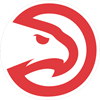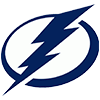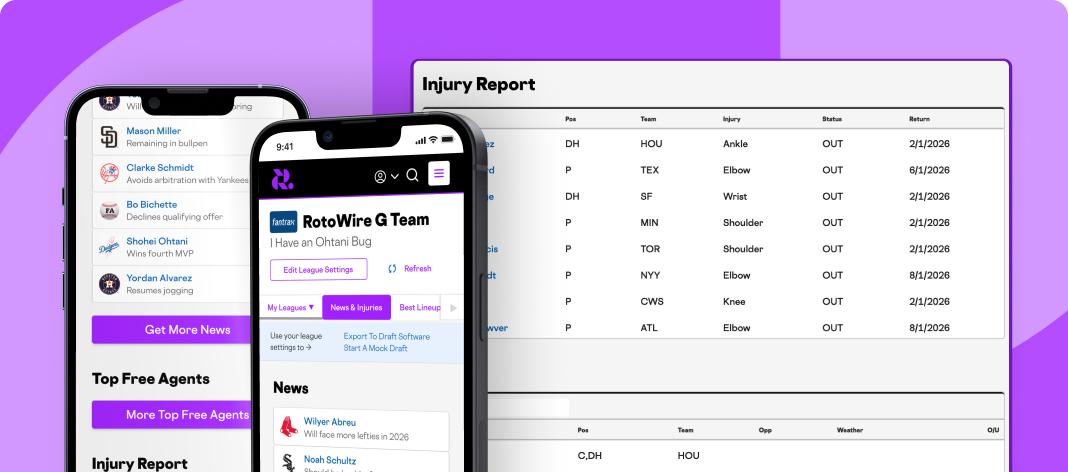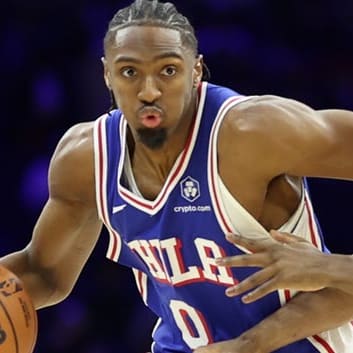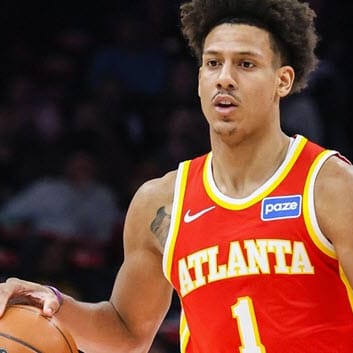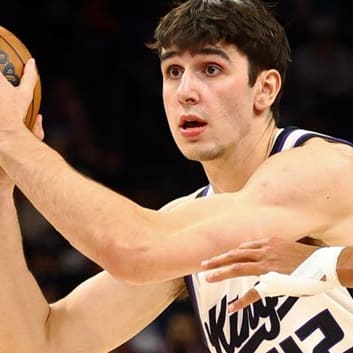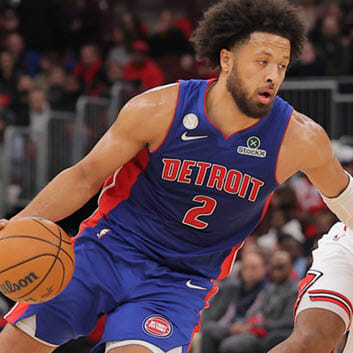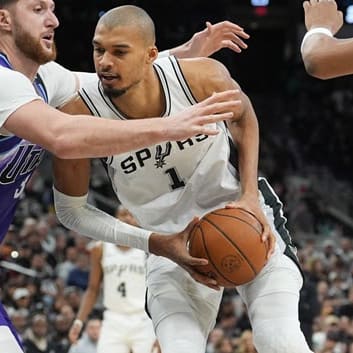In a rather surprising move Chandler Parsons has become a member of the Dallas Mavericks. The Rockets had a team option for next season on Parsons and could have kept the forward for $964,750, but he team choose instead to let him become a restricted free agent this offseason and eventually decided not to match the three-year, $46 million offer sheet that Parsons signed with the Mavericks. General manager Daryl Morey gave an interview explaining why the Rockets chose not to match Parsons which you can find here.
From a fantasy perspective, Parsons had a strong campaign last season. In the preseason, he was ranked 77th by ESPN/Yahoo but finished the season as the 39th most valuable fantasy player on a per-game basis:
2013-2014 Stats | MIN | FGA | FG% | FTA | FT% | 3PM | REB | AST | STL | BLK | PTS | Auction Value | Fantasy Rank |
Parsons | 37.6 | 13.3 | 47% | 3.0 | 74% | 1.8 | 5.5 | 4.0 | 1.2 | 0.4 | 16.6 | $20 | 39 |
Parsons' fantasy value comes from his ability to put up near-replacement level or better production in every fantasy category. Last season, his best category was three-pointers (1.8 3PM), narrowly edging out steals (1.2 spg).
Will joining the Mavericks impact his fantasy value? Let's look at how the move will affect his playing time and pace of play to find out.
Pace Impact
The Rockets played at the NBA's fifth fastest pace last season, averaging 96.3 possessions per game. This rate was well above league average pace of 93.9 and was the fastest pace of any playoff team. The Mavericks played just below the league average pace, averaging 93.5 possessions per game.
For a player like Parsons, who averaged 37.6 minutes per game last season, the difference between a pace of 96.3 and 93.5 is worth about 2.2 possessions per game. That change would have been enough to drop Parsons' fantasy rank from 39th to 49th last year.
Playing Time Impact
The RotoWire depth chart for the Mavericks has Parsons slotted in as the starting small forward for the Mavs, sharing minutes with Jae Crowder and Richard Jefferson. If that is indeed the Mavs' small forward rotation in October, Parsons should have the opportunity to play plenty of minutes next season. Seemingly, the only reason that Parsons' playing time would change is because of a change in coaches in moving from the Rockets (Kevin McHale) to the Mavericks (Rick Carlisle) and their rotational philosophies. Here is a comparison showing the players that averaged more than 30 minutes per game for the Rockets and Mavericks last season:
Rockets | Age | GP | MPG | Mavericks | Age | GP | MPG | |
James Harden | 24 | 73 | 38.0 | Monta Ellis | 28 | 82 | 36.9 | |
Chandler Parsons | 25 | 74 | 37.6 | Dirk Nowitzki | 35 | 80 | 32.9 | |
Dwight Howard | 28 | 71 | 33.7 | Shawn Marion | 35 | 76 | 31.7 | |
Patrick Beverley | 25 | 56 | 31.3 | Jose Calderon | 32 | 81 | 30.5 |
Both teams had four players average over 30 mpg last season. While it's true that the four Rockets players above generally had higher levels of playing time, that is likely due to a difference in age, as opposed to coaching philosophy. As a result, I've projected Parsons to finish next season with the same level of playing time as last season, 37.6 minutes per game.
Projection For Next Season
If we combine Parsons' previous seasons on a per-100-possessions basis to develop his projected stats for next season and then adjust that projection for the Mavericks' pace of play and an average playing time of 37.6 minutes per game (a method I explain in detail here), we get the following projection for Parsons next season:
2014-15 Projection | MIN | FGA | FG% | FTA | FT% | 3PM | REB | AST | STL | BLK | PTS | Auction Value | Fantasy Rank |
Parsons | 37.6 | 12.8 | 47% | 2.6 | 73% | 1.8 | 5.4 | 3.8 | 1.1 | 0.4 | 15.8 | $17 | 47 |
This projection would have ranked 47th last season, slightly worse than his actual ranking of 39th. His fantasy value still comes from his across-the-board production, specifically three-pointers (1.8 3PM) and steals (1.1 spg). However, the Mavs' slower pace likely means a slight drop in production across the board. I think Parsons is a pretty safe bet to achieve this level of production, and so I'd happily draft him in the fifth round of 10-team rotisserie drafts next season.
*Stats used in this article are from basketball-reference.com.
Do you have an opinion about Chandler Parsons that you'd like to share? Would you like to know how he would rank at a different level of playing time? Please leave a comment below, or contact me on twitter @MarcFRoberts.
To see the fantasy impact of other players who have changed teams this offseason you can click here to see my archive (for example: LeBron James to the Cavs). I won't be posting an article about players who rank outside of my top 130 in most cases, but I will be tweeting about those players, so please follow me on twitter if you'd like updates on deeper-league players. For example, here is my tweet about Vince Carter:
Fantasy Impact of Vince to MEM: 13-14 Rank: 129 in 24 mpg. MEM last in pace (bad), and has several wings (bad). Proj Rank for 14-15: 143.
— Marc Roberts (@MarcFRoberts) July 14, 2014


